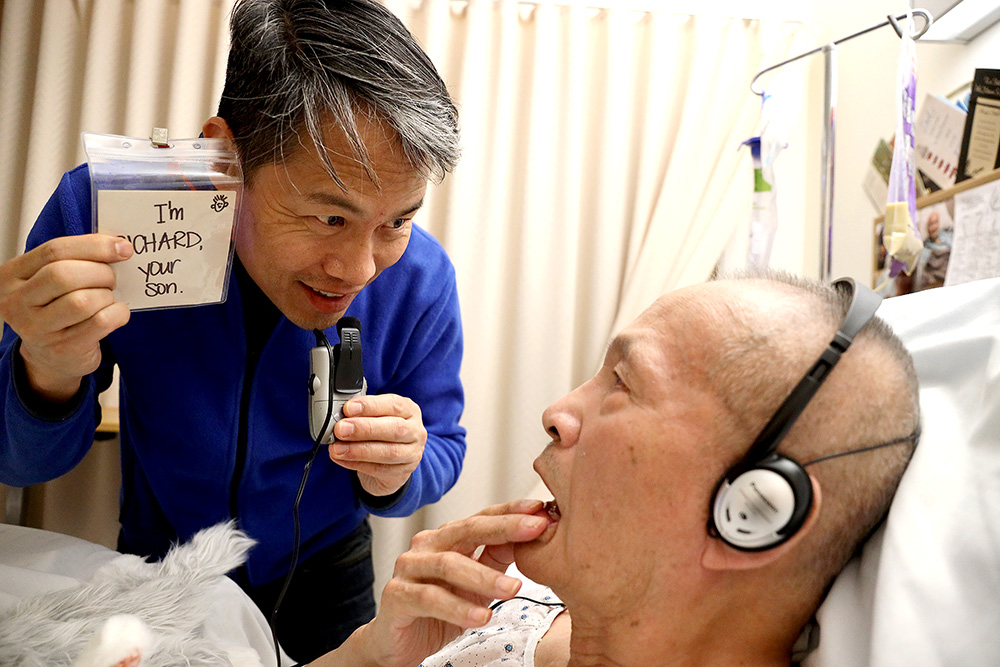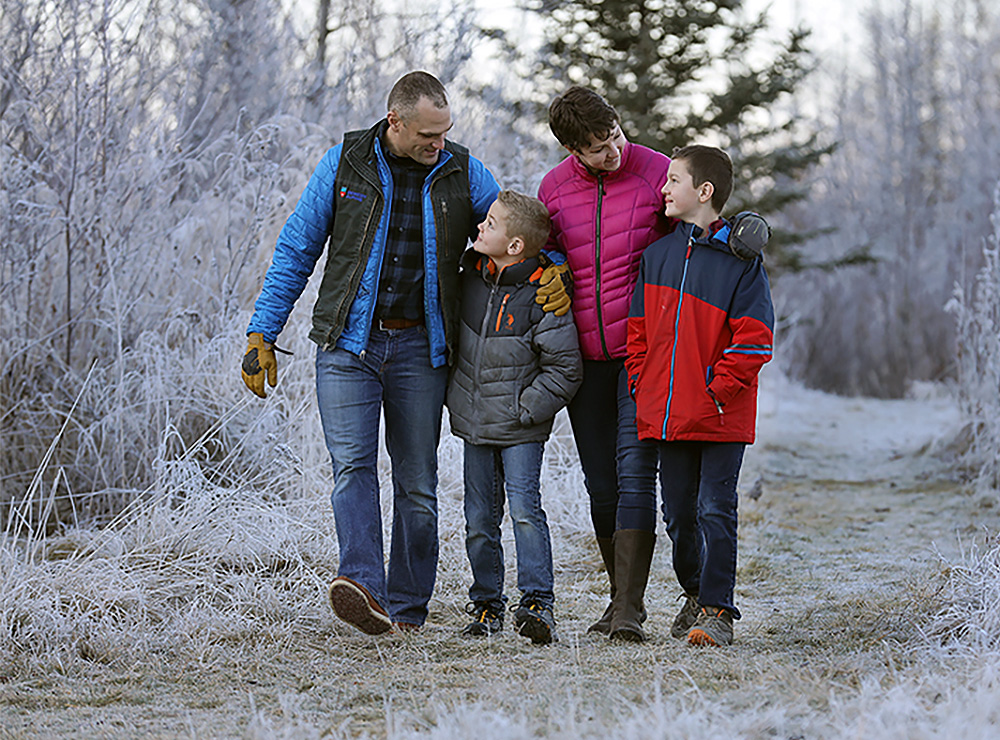Lui provides telling insight for a big story – what is happening to almost 100 million Americans. He does this by focusing on the intimate experiences of members of three families. Lui and his dad are members of one of those families in one of the best must-see films released this year.
Part 1
“I wanted (to make this film) to shift the conversation about mental health and bring it into the mainstream. We all have hidden wounds of our own. When you bring that into a caregiving context those hidden wounds become even more evident. In the film, you see the hidden wounds that are being cared for, like PTSD, cancer, and Alzheimer’s – all conditions you can’t see on the outside. But you also start to see the hidden wounds shared by the caregivers who are helping to care for their family members.” – Director Richard Liu
Nearly 58 million Americans, according to the National Institute of Mental Health, must deal with a mental health challenge each year. About 53 million Americans, according to the AARP, are family caregivers, who face their own emotional distress in caring for loved ones.
Lui says the idea to make a film to inform Americans of the emotional health challenges facing this country began brewing in his mind seven years ago. His film is kaleidoscopic in scope, this reviewer believes, because of the many planes and levels of truth and reality and fact explored and reported – and because of the ethnographic as well as his journalistic skills he most certainly can wield.
His UNCONDITIONAL is about the importance of mental health for those living with disabilities. And it shows how caregivers just like him often face issues about their own emotional health and don’t realize that they are.
The inspiration for the film, Lui says in his Director’s Statement, came from the eight years of traveling from New York City, where he works for MSNBC and is a highly respected national reporter, to San Francisco to help take care of his father afflicted with Alzheimer’s. That disease is a progressive type of dementia that begins with mild memory loss and possibly leading to loss of the ability to carry on a conversation and respond to the environment – faculties and needs everyone needs to live and survive.
There are several descriptions and definitions of caregivers which are very similar regardless of the organizations and institutions involved in the research, study and other activities dedicated to this important matter regarding health and mental health. Lui is a caregiver.
Caregivers provide valuable social or physical support to aging relatives or friends or to people who are disabled. Caregivers make regular visits to the persons they are supporting. What caregivers share in common is the reality that they sacrifice their time and energy to care for others who need their help. And the sacrifices can be immense.
Lui set out to give an epistemological view of caregiving. “As a broadcast journalist, I wanted to discover what families who share in this struggle are going through (and disseminate that knowledge as widely as was possible). UNCONDITIONAL shows how mental health is more than just a topic of news yet there is so more than what most of us believe we know. “Mental health can be positive. It can be about strength. And many times it is. This film shows the glass half-full benefits of mental health and how to recognize them.”
UNCONDITIONAL follows three members and their families. Kate Henricks Thomas, is a mental health expert with a terminal diagnosis belonging to one. Luke Bushatz, is an military veteran who spent time in Afghanistan and struggles with PTSD and TBI. “And my dad, Stephen, a pastor,” says Lui, “who spent his career as a social worker caring for senior citizens, and battles his eighth year of Alzheimer’s.”
Each family struggles and celebrates while caring for loved ones. Kate’s husband, Shane, feels unprepared to become head of the household and lose the love of his life. but finds strength and power because a pandemic keeps him home for two years. Luke’s wife, Amy, keeps her family together, realizing she doesn’t need to know everything she wants to, in the end learning ways to laugh more heartily than she ever has.
“Bringing the three families together is a journey to figure out – and it’s strange to say this here – what I’m going through and what I don’t know. So as Kate and Luke’s families sat with me, I found myself asking questions not only as a journalist, but also to learn how to help myself.”
“Worth mentioning, the majority of our production and editorial team has personal experiences with the caregiving communities. So as much a passion project for the team as it is for me, most chose to volunteer time and expertise to this project. And many thanks to the field crew who are 100 percent women, 75 percent identifying as ethnically diverse (you taught me a lot!). All said, this was an effort of many hands and faces … thanks to all of you out there.”
“Finally, as we live through a viral pandemic, racial pandemic, and care pandemic, I wanted UNCONDITIONAL to represent the courage and vulnerability that raises our personal games. My father, a social worker, and mother an elementary school teacher – they were driven to help the forgotten intergenerational, intersectional families of our cities. This film, a not-for-profit community effort, in many ways is their inspiration. One I will carry with me always.”
Director/Producer Richard Lui
Producer Alex Lo
Executive Producers Maria Shriver, Laurie Hernandez, Montel Williams, Lauren Miller Rogen
Jean Tsien, Donald Young, Steve Schwab, Jamie Nguyen, Joanne Pike
Co-Executive Producers Daphne Kwok, Sue Van, Susie Sands, Dennis Van, Robert Stephen, Pete Jeffries,
Margie Lee, Yvette Miley, Craig Robinson, Sandy Gleysteen, Naomi Tacuyan Underwood, David Magdael, Ai-jen Poo
Director of Photography Eliana Alvarez Martinez
Lead Production Sound Mixer Mielle Ezra
Editor Michelle Chang
Contributing Producers Ron Mori, Salvador Mendoza, Tom Riley, Mary Gallagher,
Brian Yang, Nadine Truong, Buck Gee, Mary Hackenbracht
Associate Producer Zack Newman
Composer Maria Lineva
Click here for Part II: Q & A
Gregg W. Morris can be reached at gregghc@comcast.net, profgreggwmorris@gmail.com



